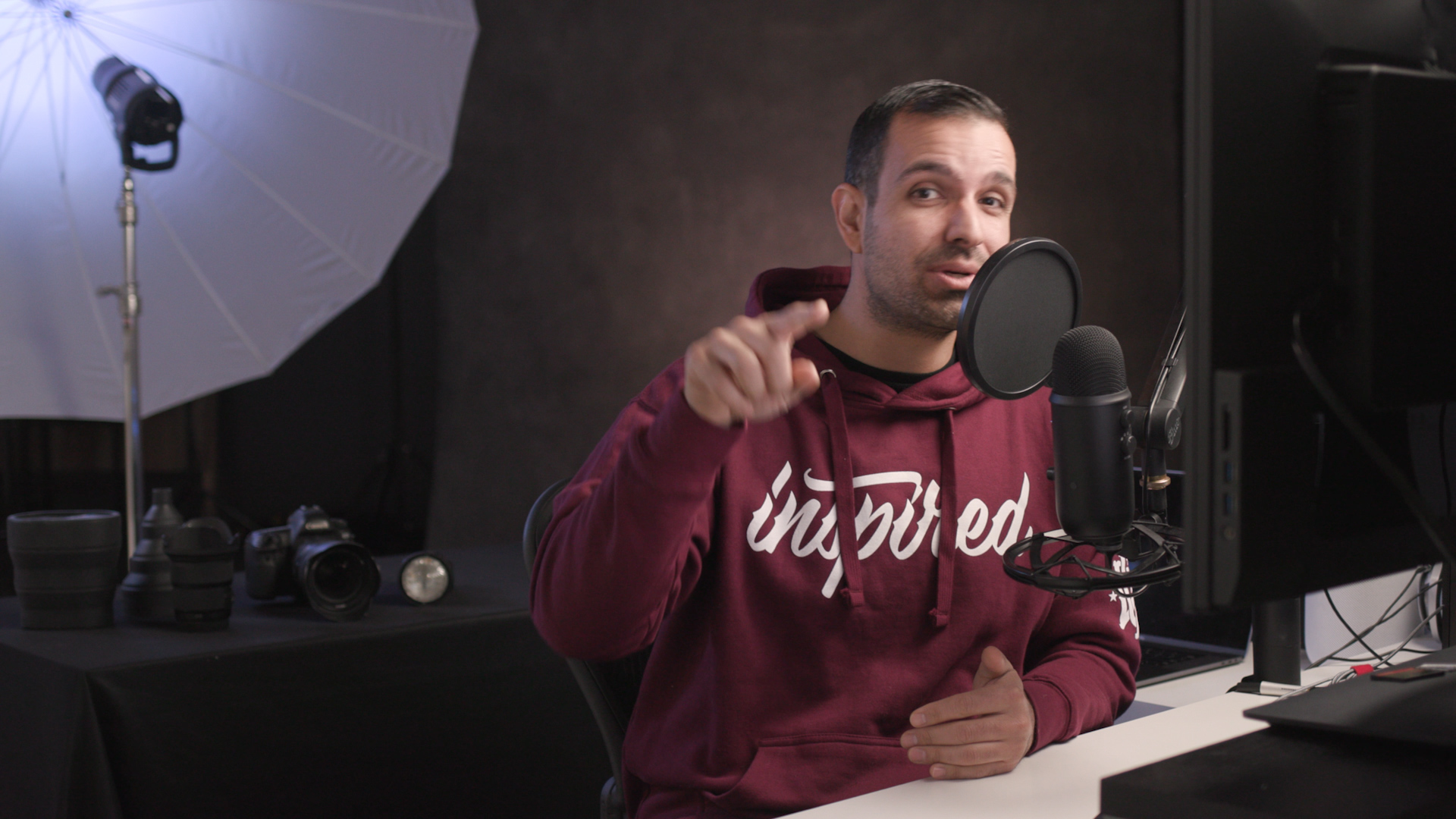
In this video, I want to talk about the future of photography, and how you can secure your job as a photographer and creative professional. With the constant evolution of camera tech become more automated and advanced, it can be daunting trying to come to terms with where you fit in in the mix of things.
We run several Facebook groups that help photographers learn and grow from each other, but sometimes, we come across some comments that illustrate a specific thought process, that “photography is more about the process than it is about the result”. While this isn’t what is outright being said, here are some of the worrisome comments that support this notion:
“You aren’t a professional unless you use a light meter.”
“If it’s edited in post, it’s not a photograph.”
“If you didn’t do it in-camera, it doesn’t matter.”
“Professionals retouch by hand in Photoshop.”
“Don’t buy presets, make your own.”
I’m here to tell you that photography has always been about the result and that the process was always just a means of getting there.
Who Do You Aim To Please?
Want proof? Find someone who’s not a photographer, and ask them to look at and evaluate a photograph. Chances are high that they aren’t going to care or give a second thought to “the process” or how you shot the image, all they care about is whether or not they think the image is good. Whether it evokes emotion and moves them. This is the audience that we should all be aiming to please, not necessarily the audience that is our peers. While there is always something to learn from our peers, it isn’t the best for your mental health or progression as an artist to constantly seek validation from them or compare your work vs theirs. I highly doubt Ansel Adams would have chosen to shoot film and spend hours developing his images if he could have done it quicker with a computer. He would have saved that time, and gone back out to shoot more!
You Choose The Reality of a Moment in Time
Here’s another argument. To the purist that thinks it’s not a photograph if it’s edited because it doesn’t represent real-life – let me ask another question – what is real? Every time you pick up the camera you choose what’s real, what makes it into the frame. Your compositional choices dictate the world you preset. The in-camera photograph itself is a manipulation of the way you see the world. This is what makes the process subjective even within the realm of photojournalism because even a photojournalist chooses what goes into his or her frame.
As a news or wartime photojournalist, I will say it’s critical to strive for truth within a photograph. But for all of you portrait photographers, what are you holding on to? The way that you shoot, pose, and light a scene is in and of itself already a manipulation, why does it matter which part happens in-camera versus in post? The viewer doesn’t care, your clients likely don’t care. They just want images that fit their vision.
Technology Takeover: How to Secure Your Future
Why do I say all of this? Because as photographers, we seem to always be worried about our jobs. Technology is improving, and it’s taking away the need for the professional. Well, that’s nothing new. In fact, this process has been happening for the past 20 years. I know film photographers who closed shop with the movement to digital, and I know film photographers who thrived. What was the difference? Film photographers who were stuck in their process failed in the transition. Film photographers who simply wanted to arrive at results clients loved, who were experience and results-oriented, thrived because things got easier!
We spend thousands of hours to create Visual Flow’s Lighting Condition Based Development System, it’s something that simplifies RAW processing down to simply selecting the desired look or Preset Pack, then choosing the lighting condition an image was shot in. You’re telling me you’d rather spend those hundreds or thousands of hours creating your own presets just to say you did? I use Luminar 4 for quick sky replacements and AI-based batch retouching, you’re telling me I should not save hours of my time, just because it’s not done by hand? There’s a time and place for advanced photoshop retouching, but for most of us, there are far simpler ways of getting to a product our clients love.
If you want to protect your future, to protect your craft, start realizing what it is that you do for a living. You are not a photographer, you are a creative professional. Your job is to bring a vision to life, and if you want to learn how to do this for your clients, then I’d highly suggest you jump into our Business Training System. It teaches everything from start to finish on how to create and price your client experience, more importantly how to understand your client’s vision and sell them something they will truly love and appreciate.





Get Connected!